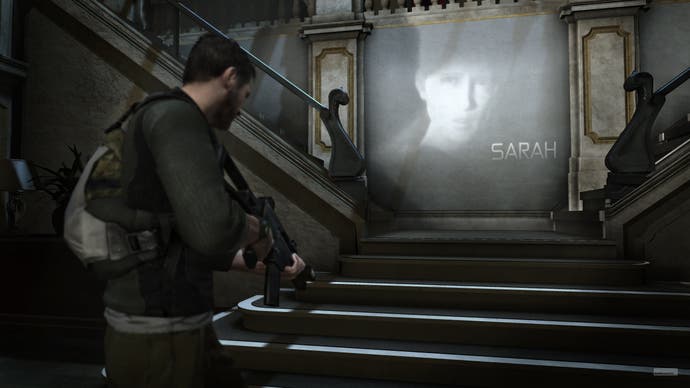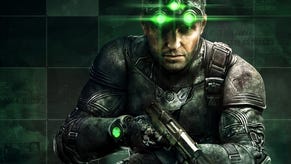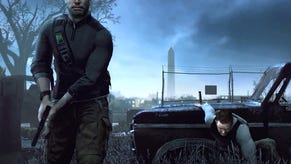Splinter Cell: Conviction
Courage?
Some P.E.C. challenges have multiple levels, with scaling rewards as you complete them one by one. Feeding these rewards into upgrading your weaponry and gadgets is an effective motivator, encouraging repeat play-throughs at each of the three difficulty levels in a more persuasive way than trophies and achievements might manage.
Some of the game's best moments are to be found outside of the main story. Conviction features a substantial and assured co-op campaign allowing two players to take on the role of Russian and US agents respectively in split-screen, system link or online, in a welcome revisit of one of the better features of the series' formative days.
In this prequel to the campaign story, Third Echelon Agent Archer and Russian Voron Agent Ketrel are charged with working together to find some missing WMDs in a mission spread across four sizeable chapters, each with multiple objectives. Both agents share the same moves as Fisher himself, including the ability to mark and execute in conjunction with one another. It's a smartly-executed addition to the single-player campaign, the stakes being raised as the death of either player leads to mission failure, forcing levels of trepidation often unnecessary in the main game.
Deniable Ops adds further value in the form of a suite of four challenge modes playable for one or two players across six maps. Each of these emphasise the more puzzle-like subtext to the game in forcing the player to balance silent takedowns with situations that require carefully planned mark and execute attacks to pass undetected.

Hunter and the unlockable Infiltration game modes require the elimination of all enemies in an area while avoiding any detection, while Last Stand has the team protecting an EMP bomb against increasingly testing enemies. The best of the bunch, however, is Face-Off, in which two players attempt to outwit one another, Spy vs. Spy-style, across a map filled with enemies hostile to both parties. Co-op and Deniable Ops buttress what is otherwise a rather slight single-player campaign, and in their balance and creativity, add true value to the package.
The main story chugs along with moderate interest, and enjoys a neat twist in its climactic sequence (OR DOES IT?), but the lip-syncing and animation is simplistic. The lack of subtlety in the storyline, amplified by some blunt QTEs that have you bashing buttons to cave in skulls during impromptu interrogations, mirrors Fisher's new overt approach. The speed and flow of the game may be more suited to mainstream tastes, but there's no escaping the cramping of tactical potential that has come with the change.
Where once players were free to tackle Splinter Cell's enemies in myriad, improvised ways, now the options are more limited, traded for an upped tempo that's more Arkham Asylum than Metal Gear. At its best, Conviction is played as a high-stakes puzzle game, taut and thrilling when everything is going your way. But when cover is broken, the floodlights go up to reveal a mediocre shooter. Perhaps the greatest irony of all is that Splinter Cell: Conviction appears brightest in the dark.




